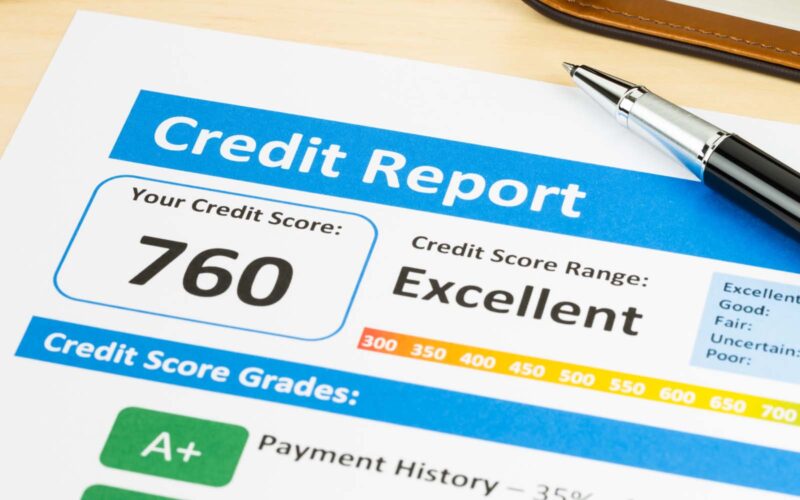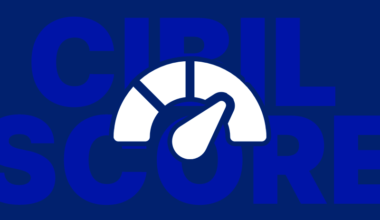Navigating the world of credit checks can be challenging, especially when trying to distinguish between hard and soft inquiries. The confusion surrounding credit checks and the myths associated with them may leave you uncertain about their impact on your financial health.
Whether you’re applying for financing now or in the future, credit checks are bound to appear on your credit report. These checks come in two forms: hard inquiries and soft inquiries. In this article, we will delve into both types of credit checks, providing clarity on their differences. But before we dive in, let’s begin by understanding what credit inquiries entail.
What is Credit Inquiry?
Credit inquiry is a process of inspecting credit report information from a credit bureau on request. Such inspections and assessments are conducted by financial institutions, lenders, or business entities to determine whether or not they should approve the credit.
A high credit score is considered good, while a lower credit score signifies the opposite. The table below sheds light on the credit score ranges and their meaning.
| Credit Score Range | Meaning |
| 300–549 | Poor |
| 550–649 | Fair |
| 650–749 | Good |
| 750–900 | Excellent |
After analysing credit scores, credit inquiries or checks are made in two types: hard inquiries or soft inquiries. A hard inquiry is generally done when you apply for a new credit service and is known to leave an impact on your credit score. A soft inquiry is done when you are not actively seeking a new service and has no adverse impact on your credit score.
What is Hard Inquiry in a Credit Check?
Hard inquiry or hard pull is usually done by a financial institution, credit card issuer or lender to assess your financial condition before making a lending decision. There is a high chance that a hard credit check may impact your credit score negatively. A high number of hard inquiries may signify a higher credit risk and may deteriorate your chances of seeking a loan in future. Some common examples of hard inquiry are:
- Applying for loans (mortgage, auto, student, personal, etc.)
- Requesting new credit cards
- Seeking credit limit increase
- Applying for lines of credit
- Submitting applications for utility services
- Completing apartment rental applications
- Collection agencies conducting skip tracing
What is Soft Inquiry in a Credit Check?
Soft inquiry or soft pull is a mere assessment of your credit report by an individual or company to run a background check. It is a standard credit check done without your permission to check whether you qualify for a specific credit card offer or by an employer before hiring you. Soft pull, however, does not affect your credit score. Some common credit checks are as follows:
- Personal credit assessment
- Pre-approved credit offers
- Applications for insurance
- Account evaluations by existing creditors
- Credit checks for employment applications
Soft Vs. Hard Credit Checks
Now that you understand what soft and hard credit checks mean, it will be easier to differentiate between them. Glance at this tabular differentiation to better understand the soft and hard checks during credit inquiry.
| Basis | Soft Credit Check | Hard Credit Check |
| Purpose | A soft check is done for informational purposes, which you or others can initiate. | A hard check is done to arrive at a lending decision for your credit application or loan request. |
| Impact on score | No impact on credit score | May cause a negative impact on credit score |
| Permission requirement | It does not require any permission. | It requires permission from the individual. |
| Visibility | Soft checks are only visible on consumer disclosure reports. | Hard checks are visible to other creditors and lenders. |
| Examples | Checking your credit score, employer checking your credit score, etc. | Applying for a loan, credit card, or new credit account |
Bonus Tips on Managing the Impact of Credit Checks
Managing the impact of credit checks is essential for maintaining a healthy credit score and financial well-being. Here are some tips to help you navigate credit inquiries effectively:
- Limit New Credit Applications: Frequent applications for new credit can lead to multiple hard inquiries, which may temporarily lower your credit score. Apply for credit only when necessary, and avoid making multiple credit applications within a short period.
- Understand the Purpose of Credit Checks: Know the purpose of each credit check. Hard inquiries are made when applying for credit, while soft inquiries are for informational or promotional purposes. Be cautious when authorizing hard inquiries and consider alternative options.
- Monitor Your Credit Report: Regularly check your credit report to track inquiries and ensure their accuracy. Report any unauthorized or suspicious inquiries to the credit bureaus immediately.
- Prioritize Your Credit Needs: Prioritize your credit needs based on urgency and importance. Avoid unnecessary credit inquiries and focus on maintaining a positive credit history.
- Use Pre-Approval Options: Opt for pre-approval offers whenever available. Pre-approvals use soft inquiries and provide a sense of your eligibility without affecting your credit score.
- Build a Strong Credit Profile: Focus on responsible credit behavior, such as paying bills on time, keeping credit card balances low, and managing debts effectively. A strong credit profile can offset the impact of occasional credit checks.
- Be Cautious with Credit Repair Services: Avoid engaging with questionable credit repair companies that promise to remove inquiries or negative information. Legitimate credit repair takes time and involves working with creditors and credit bureaus.
- Seek Professional Advice: If you have concerns about managing credit checks or improving your credit score, consider seeking advice from a certified credit counselor or financial advisor.
Conclusion
Seeking credit may require thorough credit checks of your credit reports in two ways discussed above: hard credit checks and soft credit checks. You will be eligible for a soft or hard credit check depending on your specific credit requirement. A hard check is usually done when you need to avail loan, while a soft check is a general check to seek more credit information. After referring to the table of differentiation above, you may be able to understand the difference between the two and their possible impacts. You can also manage the impact of credit checks by utilising the tips mentioned above.










